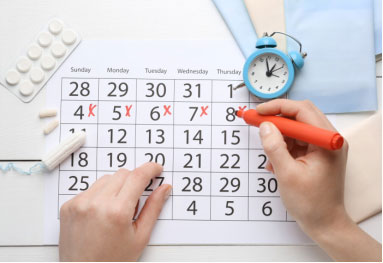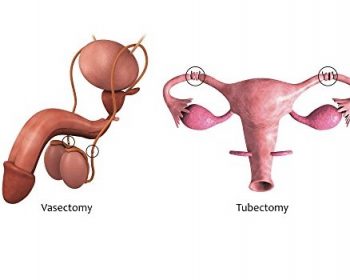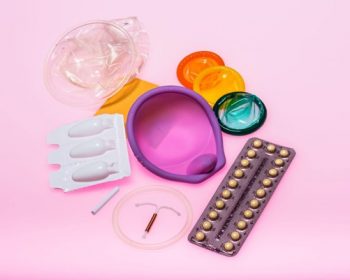
General Things to Keep in Mind about Menstrual Disorders
Menstrual cycle is a natural phenomenon and part of regular life for women of reproductive age. A little pain or discomfort is expected. It is not considered a menstrual disorder as long as it is tolerable and does not interfere with an individual’s daily lifestyle.
Anything that feels out-of-ordinary or not normal during menstruation should be addressed immediately and a healthcare professional should be consulted.
Most menstrual disorders have a genetic/hereditary component to them, but they are manageable, if not curable.
Maintaining a healthy lifestyle from an early age helps control and keep most menstrual disorders in check. Ensuring a consistent bedtime and getting enough hours of sleep helps control various menstrual disorders. It helps cue the body and mind for sleep.
Reducing the amount of refined sugar and salt from the daily diet, as well, removing nicotine, caffeine, and alcohol can help reduce the symptoms of menstrual disorders. Adding different kinds of fruits and vegetables, as a source of fiber, to diet also helps fight menstrual disorders better.
Let us check out the causes and a few remedies to fight some of the menstrual disorders.
Keeping a menstrual checklist of the symptoms for PMS/PMDD helps to stay prepared for the emotional/mental ups and downs associated with it.
For managing PMDD, medication is advised. Antidepressants or anti-anxiety medications, particularly selective serotonin reuptake inhibitors (SSRIs), can help prevent disruptive symptoms. It may not be necessary to take an SSRI every day; taking the medication only during the luteal phase (starting 14 days before the next period) may be sufficient.
Dysmenorrhea, or menstrual cramp, is caused by the contraction of the uterine muscles triggered by the release of prostaglandins, a hormone-like chemical secreted by the cells lining the uterus into the bloodstream. It can be resolved by using heat application on the abdomen, over-the-counter pain medication, and, in extreme cases, by performing a total hysterectomy.
Abnormal uterine bleeding can occur at any age, but it is more likely to occur at certain times in a woman’s life. For instance, before menopause, periods may suddenly become lighter or heavier because ovulation happens less often. It is most commonly caused due to hormonal imbalance. Aside from hormonal problems, there are many other causes of abnormal uterine bleeding. They include:
- Certain birth control methods, such as Copper-T intrauterine device (IUD)
- Infection of the uterus or cervix
- Uterine fibroids
- Blood clotting disorders
- Some types of cancer, like uterine, cervical, and vaginal
- Chronic medical problems, such as hypo- and hyperthyroidism, liver disease, kidney disease, diabetes, etc.
Exercising for at least 30 minutes, three times a week, ideally for at least 30 minutes, five days a week helps can help with abnormal uterine bleeding, PMS, and dysmenorrhea.
Amenorrhea is the total absence of menstrual periods in women of reproductive age. Amenorrhea is normal before puberty, during pregnancy, and after menopause. There are two kinds of amenorrhea: Primary and secondary.
- Primary is diagnosed when a female has reached 16 years of age and has not started menstruation.
- Secondary amenorrhea is diagnosed when someone with regular periods suddenly stops menstruating for more than 3 months. It is usually associated with being underweight, having few medical conditions, or deficiencies.
For enquiries and online appointments, visit www.DivakarsHospital.com
You can seek 2nd opinion with Dr Hema Divakar and other specialist doctors through the Divakar’s Hospital app which can be downloaded from Google Play Store or ios here – https://bit.ly/2C5cW1e
Subscribe to Divakars Hospital YouTube Channel and stay updated on videos related to pregnancy and women’s healthcare. Subscribe here – https://bit.ly/3Avct4w







